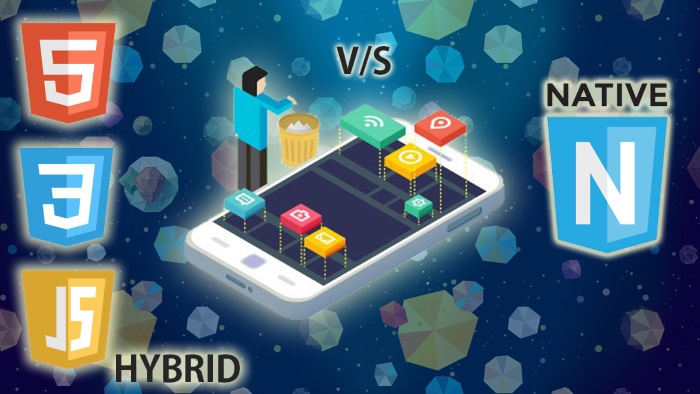Archives
- Newer posts
- April 2024
- November 2023
- October 2023
- August 2023
- May 2023
- February 2023
- October 2022
- August 2022
- July 2022
- May 2022
- April 2022
- March 2022
- February 2022
- June 2020
- March 2020
- February 2020
- January 2020
- December 2019
- November 2019
- October 2019
- September 2019
- August 2019
- July 2019
- June 2019
- May 2019
- April 2019
- March 2019
- February 2019
- January 2019
- December 2018
- November 2018
- October 2018
- September 2018
- August 2018
- July 2018
- June 2018
- May 2018
- April 2018
- March 2018
- February 2018
- January 2018
- December 2017
- November 2017
- October 2017
- September 2017
- August 2017
- July 2017
- June 2017
- May 2017
- April 2017
- March 2017
- February 2017
- January 2017
- August 2016
- June 2016
- April 2016
- March 2016
- February 2016
- January 2016
- July 2015
- June 2015
- Older posts

Hybrid v/s Native – The Never Ending Debate
In today’s world, there is an app for almost any task that is on your mind: cooking, insurance, dating, simulation, etc. More importantly, before going forward with any decision, you need to ask yourself which path you would like to go with: Hybrid or Native? Knowing the pros, cons, and limitations to each side, you may predict the future of your app.
Let us take a closer look at these two sides:
Native Apps
A native app is a smartphone application that has been specifically developed for a certain mobile operating system. Hence, we can take full advantage of the features and capabilities of the operating system which means that apps run faster and smoother.
Hybrid Apps
Hybrid apps are same as any other application but they are built using web technologies like HTML, CSS and Javascript. The main difference is that the Hybrid apps use a mobile platform Webview inside a native application. They look very similar to any other native app, but at the end of the day, the application is basically a company’s website inside a container. Applications like these include Facebook, Twitter, Instagram, etc.
Speed and User Experience
There are a few major development frameworks that you can choose from: Ionic, Xamarin, React Native, PhoneGap, etc. A native app is faster and more reliable than a hybrid app in its very design. A native app user doesn’t have to depend on the internet to download or wait for all the elements to load as it is already stored locally. Since a hybrid app depends on downloading large amounts of data, there may be a huge impact on the overall performance and speed of the app, the frequency of server requests and the load on the requests made.
Conclusion
Hence, if we look at the wider picture, a company that uses hybrid apps is more likely to spend more time fixing and optimising the app because of user issues that arise from user-interface elements or performance issues.
With UserExperience being the main differentiator, the problem with hybrid app development is that it is very difficult to cater to platforms that are simply too diverse. IPhone and Android styles are so different that from a design perspective any decision becomes a huge compromise.
Each approach has its pros and cons but at the end of the day, a native approach will have the biggest benefits.
